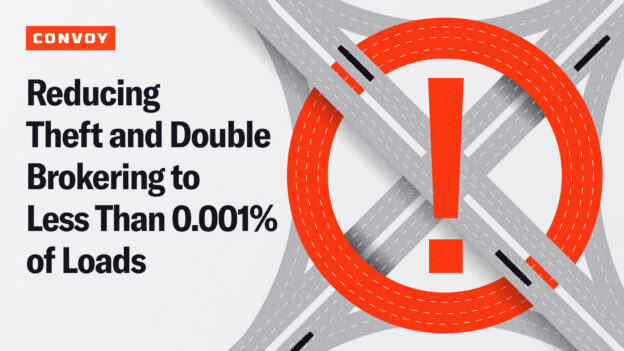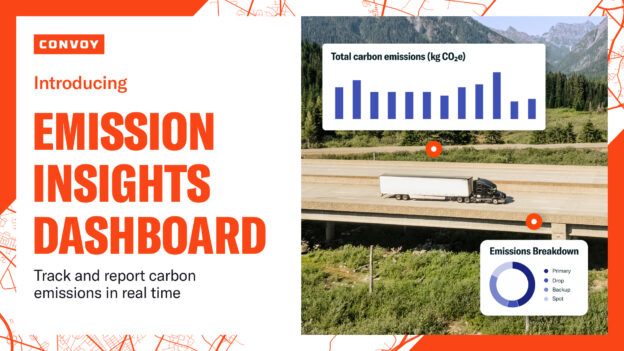Mission Possible: Getting More Companies To Make A Larger Investment In Sustainability
Shippers, Sustainability • Published on November 10, 2020
Sustainability is no longer that elephant in the room nobody wants to talk about. The reality is companies have to make an investment in sustainability in order to have a chance at maintaining market share in their industry. Every day, the world turns a more finely-tuned lens on what businesses are doing to protect people, planet, and profit, and consumers and industry watchdogs are shining a spotlight on greenwashing and deeming it no longer an acceptable practice.

As part of our Business of Sustainability interview series, we reached out to top sustainability leaders to learn what it will take to get more companies to make a larger investment in sustainability. Here’s what they had to say.
Stakeholders Demanding It
Mary Tullis Engvall, Senior Director of Corporate Responsibility at Cigna believes it all boils down to stakeholders demanding it. “There are companies — especially ones with CEOs who are very purpose driven — who embrace it, but I really think what is moving the needle on this are stakeholders speaking up loud and clear.” Engvall points to the investor community driving the momentum because they are using ESG (environmental, social, and corporate governance) as a barometer for investment potential. Additionally, companies are incorporating sustainability into their freight RFPs for vendors because they want to do business with like-minded organizations. Engvall also believes what has happened in 2020 in the world between the health crisis and social justice issues has given employees a better realization of their voice to drive positive change from the inside.
Willingness To Take Short- and Long-Term Steps
Tiila Abbitt, Founder & CEO of Aether Beauty finds the consumer is driving change and asking about environmental footprints, packaging, labor, etc., which is driving change in all industries to becoming more sustainable. “While you can’t implement 100% change overnight, look at the areas where you can make quick enhancements and then work toward long-term improvements. This is better than overpromising and under delivering because if you disappoint a customer or create an untrustworthy reputation, it is very difficult to get that customer back.” Abbitt also notes companies need to recognize they don’t have to sacrifice product quality, efficacy, or top ratings to be more sustainable.
Incorporating Sustainability Goals From The Beginning
“Companies definitely need to start as early as possible to make long-term investments,” adds Danika Padilla, the Director of Social Impact at Meow Wolf. “Whether those investments are coming from companies, government, or private funders, it costs money to do this work and hire the staff to create these systems.” Padilla stresses how important it is to have the right tools to more effectively set goals and assess impact and she finds this is something the B corp community is actively working on. “It all really starts with an understanding of where you are and where you want to be, and then really looking at your supply chain as one of the biggest places for those critical investments in the future,” Padilla concludes.
Pressure From Millenials and Gen Z, Investors, and Governments
“The consumer is driving change and more and more they are asking about environmental footprints, packaging, labor, etc., which is driving change in all industries to becoming more sustainable,” reports Amy Blyth, Director, Program Development and Partnerships at Fair Trade USA. Blyth points to three macro trends pushing more companies toward investing in sustainability and bringing it into the core of their business: 1) consumer awareness and interest among Millennials and Generation Z; 2) Investors who increasingly want to invest in companies which recognize the value sustainability brings to a brand; and 3) governments slowly starting to implement regulations to move the needle on some of the larger systemic industry issues that need to be solved.
Consumer Demand To Reduce Packaging And Plastic Waste
“We are at a tipping point, especially with regard to packaging and plastic consumption and waste,” admits Mia Davis, Director of Environmental and Social Responsibility at Credo Beauty. Davis recognizes there has been a lot of lip service and cause marketing versus actual sustainability in the past, but she feels we are seeing a much more meaningful push now. The consumer is demanding that companies be not only more mission focused in general, but have key sustainability goals they are actually delivering on.
Recognizing Sustainability Can Begin In Any Department Within The Organization
“Younger employees believe in sustainability and recognize you don’t have to sit in the sustainability function in order to have an impact on your company footprint,” observes Christine Riley Miller, Global Director of Sustainability at Samsonite. “Whether someone is in the supply chain or human resources or product design, distribution, etc., you can help shape your company strategy.” Riley Miller feels as more people start to be aware of their role and ask, “Hey, what can I do?”, we will start to see sustainability grow. She also notes that as companies start to realize consumers and investors are more interested in what companies are doing to mitigate their impact on the environment, on their workforce, and on the people in their supply chain, then they will start to see the value of it.
Awareness Of Zero Cost And Cost Savings Sustainability Opportunities
“Look at operations in a new way,” advises Julie Verdugo, Director of Sustainability + Social Impact at Free People. “You don’t need to make a large investment in new technology, etc.” Verdugo points out how many companies don’t realize energy reduction programs are actually a cost savings and many organizations have a lot of zero cost opportunities they just don’t realize. Verdugo recommends starting with a task force as a side project with someone presenting each function and get creative to identify cost savings and net zero initiatives because there is a lot of impact behind those as well.
Establishing A Sustainability Council
Working from the core of the organization, Katherine Pickus, Vice President of Global Sustainability at Griffith Foods established a creative governance structure for sustainability efforts. “Griffith Foods reorganized the board of directors to include a sustainability advisory council made up of leading individuals from outside the company and created new committees of the board aligned with the five areas of focus of our sustainability strategy. Their input at the table helped us to create a 2030 sustainability plan which drives a cohesive framework around the organization,” she added.
Recognizing The Power Behind Consumer Expectations
Danielle Jezienicki, Director of Sustainability, at Grove Collaborative believes consumers are the biggest part of the equation. “People are asking for it and demonstrating their desires through purchasing sustainable products and they are not going to go backwards,” she observes. Jezienicki believes we need to recognize consumers are voting with their dollars and using their voice and writing to let brands know they are not happy with too much packaging, giving CEOS the impetus to take action.
Reliance On Legislation Versus Morality
Annie Agle, Senior Director, Corporate Social Responsibility at Cotopaxi sees “There’s not a lot of clarity on priority coming from legislation or political leaders, and business needs to be given a sense of direction.” Agle knows sustainability adherence is voluntary — particularly as it relates to human rights and sustainability. “There’s a moral responsibility, for example with the UN guiding principles for businesses which made a great suggestion around organizations having a responsibility to uphold human rights, climate activism, and environmental best practices, but there’s no legal obligation.” Agle feels we cannot just expect businesses to prioritize sustainability and social responsibility if there is no policy to back it up.
When Sustainability Becomes A “Must Have” For Capitalism
Ryan Emmons, Co-Founder & CEO at Waiākea, says it all boils down to the numbers. “It’s a data driven economy and consumer demand for sustainable products is what is really going to drive change. When sustainability becomes a ‘must have’ for capitalism, the shift is going to happen because people will realize you can’t NOT address climate change and you can’t NOT address sustainable packaging because you just won’t sell your product.” Emmons sees the marketplace as approximately five years away from this big shift, but he has seen some shift over the last 10 to 20 years.
Market Driven Investment And Assistance
Marty McKinzie, Vice President of Industry Relations at Dairy MAX reports knows the dairy industry has made significant improvements in greenhouse gas emission reduction, but for the industry to move to that next step, he knows it will need to be market driven. “Genetics and nutrition are something every single dairy farm has improved upon over the last 70 to 75 years quite easily. But as far as the investment going forward in sustainability, it’s going to take technological advancement and investment to keep moving forward.”
Better Transparency And Communication
Supplier diversity is a key part of sustainability and Antonio Davis, CEO at AI Logistics has faced this first hand. “To drive more growth in diversity, companies have to be open to something different.” Davis adds that corporations need to be willing to work with smaller companies to show them what is required to be a qualified vendor. Rather than dismissing smaller businesses for lack of qualifications, all it takes is a willingness to identify and share the qualifications for working with a company so small businesses can step up and take action. “I have to know what the barriers of entry into your company are, so, if you start off by educating and saying, “This is what it takes to work for our company,” I think that would be a huge step.



